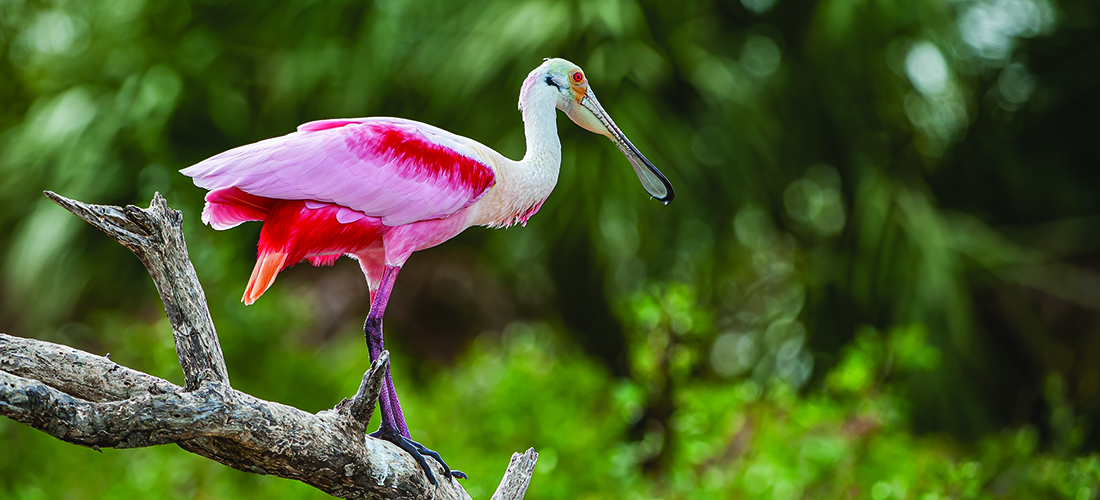
Rare Bird Alert
Keep an eye out for the roseate spoonbill
By Susan Campbell
With its bright pink body, the roseate spoonbill is certainly the most distinctive and garishly colored bird in North America. And what about that odd bill? Although their typical range does not include North Carolina, spoonbills do stray into the extreme southeastern part of our state in late summer into early fall. So, if you keep your eyes peeled at this time of year, you may be lucky enough to spot one.
Research indicates that breeding colonies are found in parts of Florida, Louisiana and Texas. Unfortunately, the birds there are not widespread, even where they are regular. Loss of foraging habitat has restricted roseate spoonbills to protected areas such as wildlife refuges. Water quality has also reduced prey, as sedimentation and chemical pollution have inundated bays and estuaries in the Southeast.
There are several species of spoonbills worldwide, but roseate is the only one found on this continent. Their name comes from the birds’ bright red-pink plumage and spoon-shaped bill tip. Their extremely sensitive mandibles snap shut around food items such as small fish, crustaceans and insects found in the shallow waters they probe. Roseate spoonbills swing their heads side to side as they slowly walk though brackish or saltwater. The types of foods they capture result in their bright feathers.
Those amazing pink feathers put the birds at risk of extinction during the 19th century when many spectacularly colored birds were hunted for their plumes. The wings of roseate spoonbills were, unbelievably, actually sold as fans as well as for hats and other adornments.
When these amazing birds are spotted in our state, they are almost always mixed in with other waterbirds such as herons and egrets. They are extremely gregarious year-round. The best place to scan along the coast beginning in mid-July is Twin Lakes, in the Sunset Beach area. However, individual roseate spoonbills have also been found at Ocean Isle and North Topsail, as well as in the mouth of the Cape Fear in recent years.
Last summer, there were many reports of roseate spoonbills, not only inland in North Carolina but well to our north, including immature birds with their size and unusual bill as well as their pale pink plumage. One roseate spoonbill was sighted in Pinehurst and up to four in Woodlake. If you catch sight of one of these distinctive birds anywhere in the Sandhills or Piedmont, please let me know. PS
Susan Campbell would love to receive your wildlife sightings and photos. Contact her at susan@ncaves.com.





